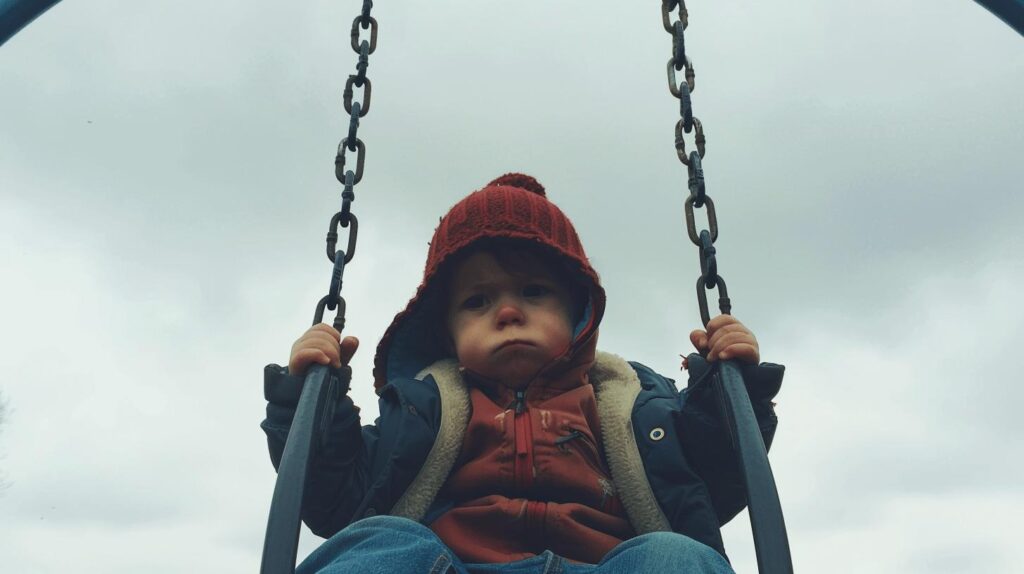Is constant criticism a necessary evil for raising successful children, or is it a silent saboteur of their well-being? The effects of critical parenting on child development are profound and far-reaching, shaping everything from self-esteem to future relationships. This article unpacks the concept of critical parenting, explores its psychological bases, and reveals common signs that you might be overly critical. It then delves into the lasting emotional and developmental impacts on children and offers practical strategies for healing. If you want to understand the real cost of being a demanding parent, keep reading.
Understanding Critical Parenting and Its Effects
Critical parenting is characterized by constant criticism and high expectations. Parents often engage in this behavior with good intentions, aiming to guide and help their children succeed. However, the persistent nature of criticism can lead to unintended negative outcomes, impacting the child's emotional and psychological well-being.
Common traits of critical parents include perfectionism, setting unattainable goals, and emotional unavailability. These parents may believe that stringent standards will motivate their children to achieve more. Perfectionism often leads to setting goals that are nearly impossible to attain, causing children to feel a constant sense of inadequacy. Emotional unavailability can make children feel unsupported, as they may not receive the emotional validation they need.
Signs that someone was raised by a critical parent include:
- Feeling like they can never meet their parents' expectations, regardless of effort
- Having a harsh inner critic
- Struggling with low self-esteem
- Experiencing anxiety or depression
- Being overly critical of others
- Avoiding new challenges due to fear of failure
Psychological and Emotional Impact on Children

Constant criticism early in life can undermine self-trust, leading to self-doubt and low confidence. Children who are frequently criticized may internalize negative messages, feeling that they are never good enough. This erosion of self-esteem can have long-lasting effects on their overall development.
Frequent criticism also impacts a child's confidence and decision-making abilities. When children are consistently told that their efforts are insufficient, they may become hesitant to take risks or try new things. They may struggle to bounce back from mistakes, leading to a drop in self-worth. This continual fear of failure can result in perfectionism, where children strive to avoid any possible criticism by setting unrealistically high standards for themselves. Additionally, social anxiety can develop as children become fearful of judgment from others.
Emotional impacts of critical parenting include:
- Heightened anxiety
- Increased risk of depression
- Development of perfectionist tendencies
- Difficulty in forming and maintaining relationships
- Chronic feelings of inadequacy
Developmental delays and social skills are also affected by critical parenting. Children who face constant criticism may find it challenging to develop age-appropriate social skills. They might struggle with peer interactions, leading to social isolation. Developmentally, these children may also miss out on key learning opportunities due to their fear of making mistakes, impacting their educational and personal growth.
| Emotional Impact | Description |
|—————————–|—————————————————————————–|
| Heightened anxiety | Children may constantly worry about being judged or criticized. |
| Increased risk of depression| Persistent feelings of inadequacy can lead to depressive symptoms. |
| Development of perfectionism| Children may set unattainably high standards to avoid criticism. |
| Difficulty in relationships | Struggles with trust and communication can hinder relationship formation. |
| Chronic feelings of inadequacy| Constant criticism can make children feel they are never good enough. |
Long-Term Effects of Critical Parenting in Adulthood
The impact of critical parenting can persist into adulthood, significantly affecting communication and relationships. Adult children of critical parents often carry forward deep-seated belief systems formed during childhood. These ingrained beliefs can manifest as difficulties in expressing emotions or establishing trust. Additionally, interactions with peers, partners, and colleagues may be strained due to a heightened sensitivity to criticism and fear of judgment. This enduring influence shapes the way individuals perceive themselves and others, often leading to a cycle of criticism in their own parenting styles or relationships.
Common long-term effects of critical parenting include:
- Low self-esteem
- Difficulty trusting others
- Chronic anxiety and depression
- Perfectionist tendencies
- Struggles with intimacy and vulnerability
Addressing these long-term effects is crucial for personal growth and well-being. Healing requires a deliberate effort to explore past experiences and modify deeply ingrained belief systems. Therapy can provide a supportive environment to unpack these issues, helping individuals develop healthier communication patterns and rebuild self-esteem. By confronting and addressing the lingering impacts of critical parenting, adult children can break the cycle and foster more positive, nurturing relationships.
Strategies to Mitigate the Effects of Critical Parenting

Addressing the inner critic is vital for healing from critical parenting. The constant negative self-talk developed in childhood can persist into adulthood, affecting self-esteem and decision-making. By recognizing and challenging these internalized critical voices, individuals can begin to replace them with more supportive and positive self-beliefs.
Open, receptive communication plays a key role in healing. Engaging in honest conversations about past experiences can help break long-standing patterns of criticism and emotional unavailability. This form of communication fosters understanding and empathy, allowing both parents and children to address unresolved issues. It can also pave the way for establishing healthier relationship dynamics moving forward.
Strategies to handle critical parents and cope with their effects include:
- Therapy: Professional therapy, such as family therapy, can provide a safe space to explore and address the impacts of critical parenting.
- Positive Affirmations: Incorporating daily positive affirmations can help rewire negative thought patterns and boost self-esteem.
- Boundary Setting: Establishing clear boundaries with critical parents can protect one's emotional well-being and promote healthier interactions.
- Support Networks: Building a support network of friends, family, or support groups can offer emotional validation and guidance.
Case Studies and Expert Opinions on Critical Parenting
Experts suggest that critical parenting often stems from a desire to motivate children but can lead to negative psychological impacts. While parents may believe that constant criticism will push their children to excel, research shows it can instead undermine self-esteem and foster anxiety. Psychological experts have found that children subjected to critical parenting are more likely to develop perfectionist tendencies and experience chronic stress. This type of upbringing can hinder emotional development, making it difficult for children to form healthy relationships and trust others.
Case studies reveal the diverse outcomes of critical parenting:
- A successful career path but deep emotional scars
- Struggles with chronic anxiety and perfectionism
- Difficulty in forming and maintaining personal relationships
Family therapy is recommended for addressing and mitigating the long-term effects of critical parenting. It offers a structured environment where individuals can explore their childhood experiences and understand how these have shaped their current behaviors and beliefs. Therapists can help families develop healthier communication patterns, fostering empathy and reducing the cycle of criticism. Through family therapy, both parents and children can work towards healing and building more supportive and nurturing relationships.
Final Words
In the action, critical parenting involves constant criticism and high expectations.
It can lead to significant psychological and emotional impacts, such as reduced self-esteem and increased social anxiety.
Long-term effects often manifest in adulthood, affecting communication and relationships.
However, strategies like therapy and positive communication can mitigate these effects and promote healing.
Understanding critical parenting effects is essential for fostering healthier parent-child dynamics and personal growth.
Recognizing these patterns empowers individuals to break the cycle, leading to better outcomes for both parents and children.
FAQ
What are the effects of critical parents?
Critical parents can lead to low self-esteem, perfectionism, anxiety, depression, and strained relationships in their children.
How to overcome a critical parent?
Overcoming a critical parent involves addressing your inner critic, adopting positive belief systems, engaging in open communication, and seeking therapy.
How can critical parenting affect adult relationships?
Critical parenting can affect adult relationships by causing trust issues, low self-worth, communication difficulties, and a tendency to avoid vulnerability.
How does parental criticism affect a child?
Parental criticism can undermine a child's self-trust and confidence, leading to self-doubt, low self-esteem, and social anxiety.


